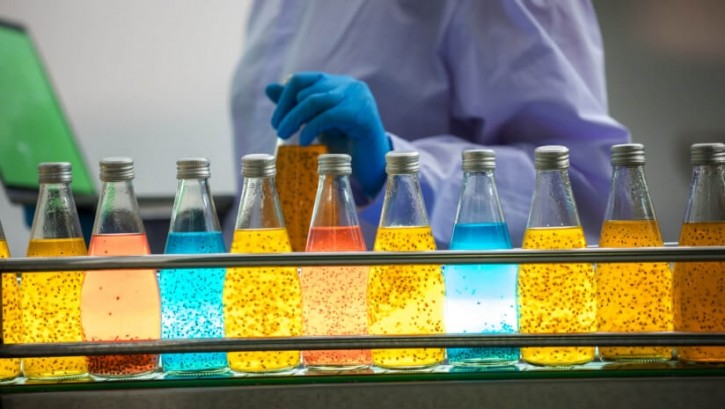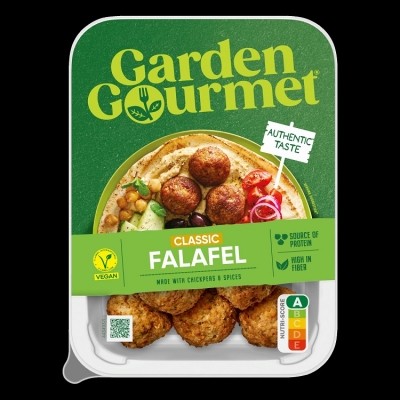Unilever, Nestlé and Coca-Cola villainised for government scientist ties

Food industry critics including ultra-processed food moaner professor Chris van Tulleken have laid into the UK government’s use of scientists who have ties with or consult for food and drink manufacturers.
“More than half of the experts on the UK government’s advisory panel on nutrition have links to the food industry,” claimed a British Medical Journal (BMJ) analysis.
While the report takes aim at the scientists, the industry and the nutritional value of the food and drink it produces have been caught in the crossfire.
No fewer than 11 of the 17 Scientific Advisory Committee on Nutrition (SACN) – an organisation responsible for consulting on UK government health policy – “have conflicting interest with the likes of Nestlé, sugar manufacturer Tate & Lyle and Unilever”, the report said.
Do food and drink companies influence health policy?
Scientists appointed as independent experts to the committee are a powerful group advising government and “influencing policy”. They produce recommended daily guidelines for salt, sugar, vitamin D intake and feeding babies, it continued.
Scientists, government and industry frequently work together "on the science that underpins the nutrition, food safety and security of our food and drink supply chain", a spokesperson for the UK's Food and Drink Federation (FDF) said.
Read more – Opinion: Why F&B makers are villains over govt's scientist picks
Critics, however, argued that while scientists consulting with government must declare any conflicts of interest – and may be excluded from discussions as a result – obesity rates and food-related ill health are rising. Over a quarter of UK women (28.3%) and men (26.9%) are now obese, almost double the rate 30 years ago.
Government scientists’ close links with food and drink companies are “detrimental” to public health, the report said.
“Even small financial conflicts affect behaviour and beliefs in subtle or unconscious ways – we have data from food and pharma research showing this,” van Tulleken told the BMJ.
“Conflicts in SACN damage the reputation and credibility of the committee. How can someone who claims to have an interest in public health have any links to companies like Coca-Cola or Unilever?”
How food and drink works with government
Van Tulleken went on to say it had been known for decades “companies like these” made products that caused harm and even those that made “less harmful” products could not self-regulate.
“We also work collaboratively on research projects on, for instance, innovation to make everyday food and drink products healthier; often this is to ensure that part-government funded research has a real-world application. This work is governed by strict, transparent conflict of interest protocols, which all parties must adhere to," the FDF spokesperson said.
“We continue to believe that this collaboration remains in the public interest. Industry has a wealth of information and expertise which should be available to government and academia, and which plays an important role in the development of effective government policy.”
FoodNavigator contacted Cargill, Tate & Lyle, Coca-Cola and Unilever for comment.
Which SACN scientists are linked to what F&B businesses?
David Mela:
- Unilever consultancy - over £5,000/year
- Tate & Lyle consultancy - over £5,000/year
- Cargill consultancy
- Member of ASN (funder by F&B)
Julie Lovegrove:
- Chair of ISL (founded by F&B)
- Dutch Dairy Council funding - over £5,000/year
- Danish Dairy Foundation funding - over £5,000/year
- Member of ASN
Kevin Whelan:
- Danone research grant - £5,000/year
- Almond Board of California research grand – x2 at over £5,000/year
- Lecture and Alpro podcast recording
- Lecture for Nestle Health Sciences
- Chaired annual meeting for Dairy Council
- Research grand from INDFC - over £5,000/year
- Presentation for Yakult
- Member of ASN
Gill Fine:
- Sainsbury’s shareholder
- Consultant for Musgrave Group
- Former governor and trustee of BNF (has F&B members)
Paul Haggarty:
- Head of lifelong health at Rowett Institute of Nutrition Foundation, which has F&B members
Sian Robinson:
- Member of ASN
- Member of the subgroup on maternal and child nutrition
Susan Fairweather-Tait:
- Member of ASN
Mairead Kiely:
- Member of ASN
- Research funding from Meat Technology Ireland - over £5,000/year
- Member of the subgroup on maternal and child nutrition
Susan Lanham-New:
- Definition related work for General Mills
Ken Ong:
- Research Funding from Mead Johnson Nutrition - over £5,000/year
- Member of the subgroup on maternal and child nutrition
Lucilla Poston:
- Danone’s Nutrica Research Organisation sponsored her PhD
- Research grand from Almond Board of California - over £5,000/year
- Member of the subgroup on maternal and child nutrition
Ann Prentice:
- Council member of Nestle Foundation - over £5,000/year
Marion Hetherington:
- Provided unpaid research summary for Ella’s Kitchen
- Consultancy work for Danone
- Speaker at conference for Dairy Council Northern Ireland






















